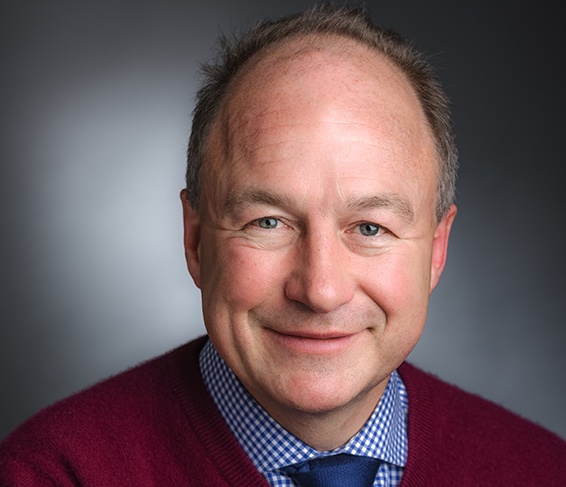
Paul G. Richardson, MD
Languages Spoken:
Arabic, FrenchContact Information
Office Phone Number
Fax
Appointments
On This Page
Biography
Paul G. Richardson, MD
After certification in Internal Medicine, Hematology and Medical Oncology, as well as working in Cancer Pharmacology from 1994 onwards at Dana-Farber Cancer Institute (DFCI), Dr. Paul Richardson joined the Jerome Lipper Myeloma Center in 1999, was appointed Clinical Director in 2001, and led the development of several first-generation novel drugs including bortezomib, lenalidomide and pomalidomide for the treatment of multiple myeloma. Subsequent studies have focused on next-generation novel drugs including panobinostat and second-generation proteasome inhibitors including ixazomib. More recently, his clinical innovations have been in the development of the breakthrough monoclonal antibodies elotuzumab and daratumumab for the treatment of both untreated and relapsed myeloma, as well as isatuximab and more broadly, antibody drug conjugates including belantamab mafodotin, as well as other immunotherapeutic strategies. In addition to these agents, he is leading the development of melflufen, a targeted cytotoxic and a first-in-class small molecule inhibitor selinexor, which inhibits XPO-1, a key nuclear export protein, as well as first-in-human studies of cereblon E3 ligase modulators (so called CELMoDs) for the treatment of relapsed and refractory myeloma. Over the last decade, his major effort has been focused on the development of lenalidomide, bortezomib and dexamethasone (so-called RVD), and its incorporation as part of the Intergroup Francophone Myelome (IFM)/DFCI clinical trial in newly diagnosed patients eligible for stem cell transplant treated with RVD. This regimen has generated an unprecedented response rate, leading to its adoption in this international study, as well as others in the United States and elsewhere. This particular trial incorporates genomic and proteomic evaluation to establish a future platform for tailored therapy and the optimal positioning of stem cell transplant, with results anticipated in 2021-22. Furthermore, RVD has been established as a backbone to which next-generation agents are being added, including elotuzumab, daratumumab and isatuximab, as well as panobinostat. He has published extensively, having authored or co-authored over 400 original articles and 330 reviews, chapters, and editorials in peer-reviewed journals. In addition to holding positions on the Editorial Boards of leading journals, he is prior Chairman of the Multiple Myeloma Research Consortium (MMRC), Clinical Trials Core, a position held for 5 years as part of a rotating tenure, and for which he continues as a member of the Steering and Project Review Committee. He was also a member of ASCO Hematologic Malignancies Subcommittee for the required one-year term, and then for one year on the ASCO Internet Cancer Information Committee during 2017. He was appointed Chair of the Alliance Myeloma Committee in 2011 and continues in this role. Honors include the George Canellos Award for Excellence in Clinical Research and Patient Care, and The Tisch Outstanding Achievement Award for Clinical Research, as well as an honorary Fellowship of the Royal College of Physicians (UK), given in recognition for international contributions in multiple Myeloma and stem cell transplantation. He was a co-recipient of the prestigious Warren Alpert Foundation Prize in recognition of the successful therapeutic targeting of the ubiquitin-proteasome pathway in 2012. He was also a co-recipient of the Accelerator Award for contributions to clinical research and patient enrollment in MMRC studies, as well as for the Research Center of the Year Award in 2009, followed by the second award for Center of the Year in 2017. He was ranked by Thomson Reuters Science Watch amongst the top 19 investigators at DFCI for the most highly cited research in 2016. He was the co-recipient of the ASH Ernest Beutler Prize for clinical science and translational research in the development of proteasome inhibition as an effective treatment strategy for multiple myeloma in 2015; the COMY Award for MM research (Paris, France) in 2016, and the prestigious IMF Robert A. Kyle Lifetime Achievement Award in 2017, and the Morse Research Award in 2019.
Researcher
Physician
Clinical Interests
Experimental therapeutics and cancer pharmacology, Multiple myeloma, Non-myeloid injury including VOD in bone marrow transplantation, Regimen-related toxicity, Stem cell transplantation
Diseases Treated
Board Certification
- Hematology, 1999
- Internal Medicine, 1997
- Medical Oncology, 1998
Fellowship
- Baystate Medical Center, Tufts University, Hematology & Oncology
Residency
- Beth Israel Deaconess Medical Center, Internal Medicine
- Newcastle General and Freeman Hospitals, Internal Medicine
- Royal Marsden Hospital, London, Chief Resident
Medical School
- University of London, St. Bartholomew's Medical College
Recent Awards
- Biochemistry Slot Prize,
Hungarian Prize,
Honours Colors,
Wheelwrights Prize,
Ver Heyden de Lancy Prize: Joint Winner,
Emil Frei III Fellowship Award,
Lee Beckenstein Fellowship Award,
The Society of Teaching Scholars,
George Canellos Award for Excellence in Clinical Research and Patient Care,
Partners in Excellence Award,
Medical Book Competition Award for Multiple Myeloma,
Tisch Family Outstanding Achievement Award in Translational Research,
Compassionate Caregiver Award,
Fellow of the Royal College of Physicians
1983
1986
1986
1986
1986
1995
1997
2002
2004
2004,2005
2005
2008
2008
2009
Research
Publications
Locations

Dana-Farber Cancer Institute
450 Brookline Avenue Dana 1B07 Boston, MA 02215Dana-Farber Cancer Institute










